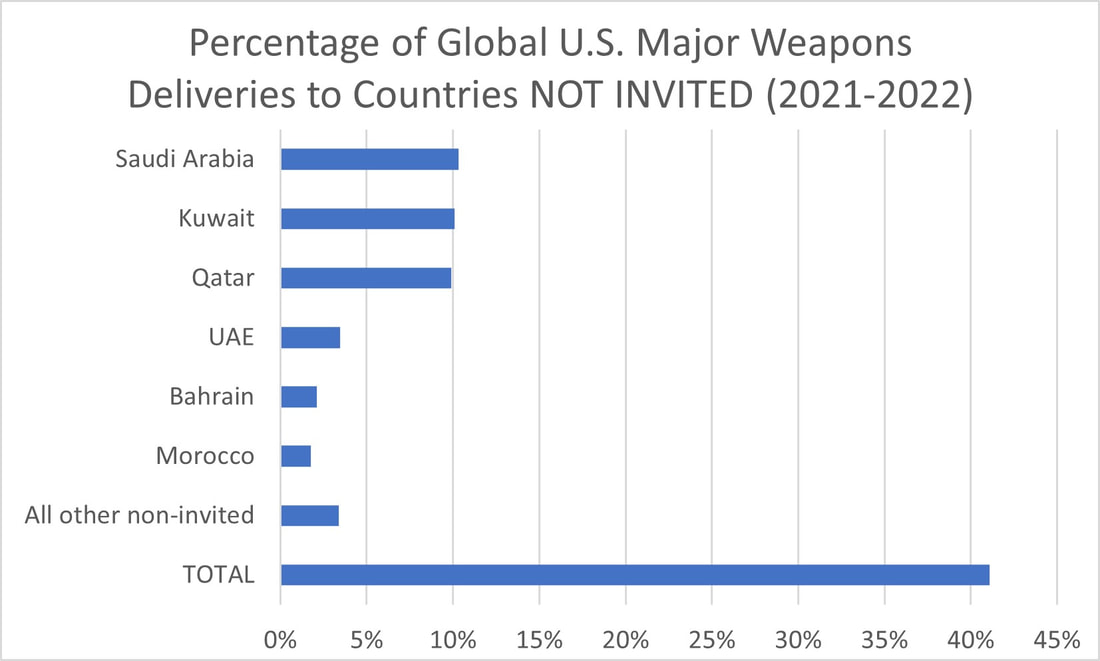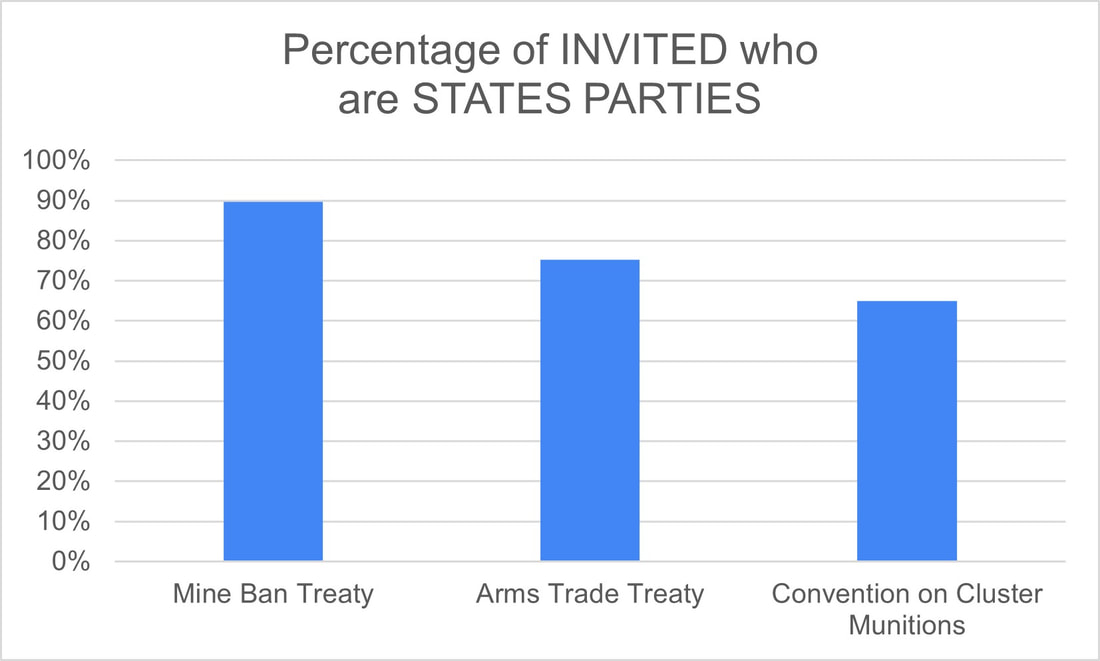As the awful war in Ukraine remains framed as a struggle between democracies and autocracies, it is important to assess whether U.S. goals to build a community of democracies match its actions. With the second Summit for Democracy taking place this week, and the Biden administration now in its third year in office, this post updates an earlier one related to the 2021 Summit. It primarily asks whether disconnects have improved in how the United States participates in the arms trade and supports humanitarian disarmament, with a lens on 2023 Summit invitations? The short answer is a tiny bit.
Compared to 2012-2021 (46%), the percentage of major weapons transfers to countries NOT invited to the latest Summit has declined, but still more than 40% of major U.S. weapons transfers over the last two years have gone to countries NOT invited to the 2023 Summit for Democracy. And, while the United States has revised its landmine policy and supported a political declaration on the use of explosive weapons in populated areas, writ large it continues to eschew humanitarian disarmament treaties that are supported by (often vast) majorities of INVITED countries.
Updated 2023 Summit for Democracy invitation list and other data
During a press briefing on March 22, 2023, the Untied States confirmed all the countries invited to the 2021 Summit would be invited to the 2023 Summit for Democracy as well as Bosnia and Herzegovina, Liechtenstein, Cote d’Ivoire, Gambia, Mauritania, Mozambique, Tanzania, and Honduras. This revised list, combined with updated SIPRI data released in March 2023 and latest treaty support information, is used in the analysis below. Discussion of whether all invitees truly are democratic, rather than autocratic, is not part of this analysis but is recognized as also valuable.
During the Biden administration's first two years (2021-2022), more than 40% of U.S. major weapons transfers have gone to countries not invited to the Summit for Democracy
One might expect that an effort to build democracies globally would also result in decisions to send fewer weapons to countries who are not democracies, or put differently, that a small percentage of U.S. arms transfers would go to those countries not invited to the Summit for Democracy. Looking just at the first two years of the Biden administration, however, 41% of major U.S. weapons deliveries have gone to just such countries, with Saudi Arabia, Kuwait, and Qatar each receiving about 10% of global deliveries. (See data [Excel] and delivery details [pdf]).
Of those invited to the 2023 Summit, 90% are states parties to the Mine Ban Treaty, 75% to the Arms Trade Treaty, and 65% to the Convention on Cluster Munitions -- key treaties within the human security-centered humanitarian disarmament approach for dealing with the adverse impacts of arms. (View data [Excel].)
The United States is not a state party to any of these treaties, making it a minority within the community of those invited.
Since the 2021 Summit, the United States did announce a new landmine policy that brings it into closer alignment with Mine Ban Treaty states parties, but still reserves the ability to use victim-activated anti-personnel landmines in the Korean peninsula. In discussing the new CAT policy, U.S. officials did make clear this month that they are still considering their approach to the Arms Trade Treaty (see video at 1:15:25), which had been signed during the Obama administration, but the Trump administration rejected. (See resource page and commentary.) The Biden administration does not appear to be conducting a review of its cluster munition policy and is now facing pressure from some members of Congress to transfer treaty-barred weapons to Ukraine.
In a break with the Trump administration, the Biden administration did more fully support the effort to create a political declaration on the use of explosive weapons in populated areas, which it endorsed in ceremonies in Dublin in November 2022.



 RSS Feed
RSS Feed